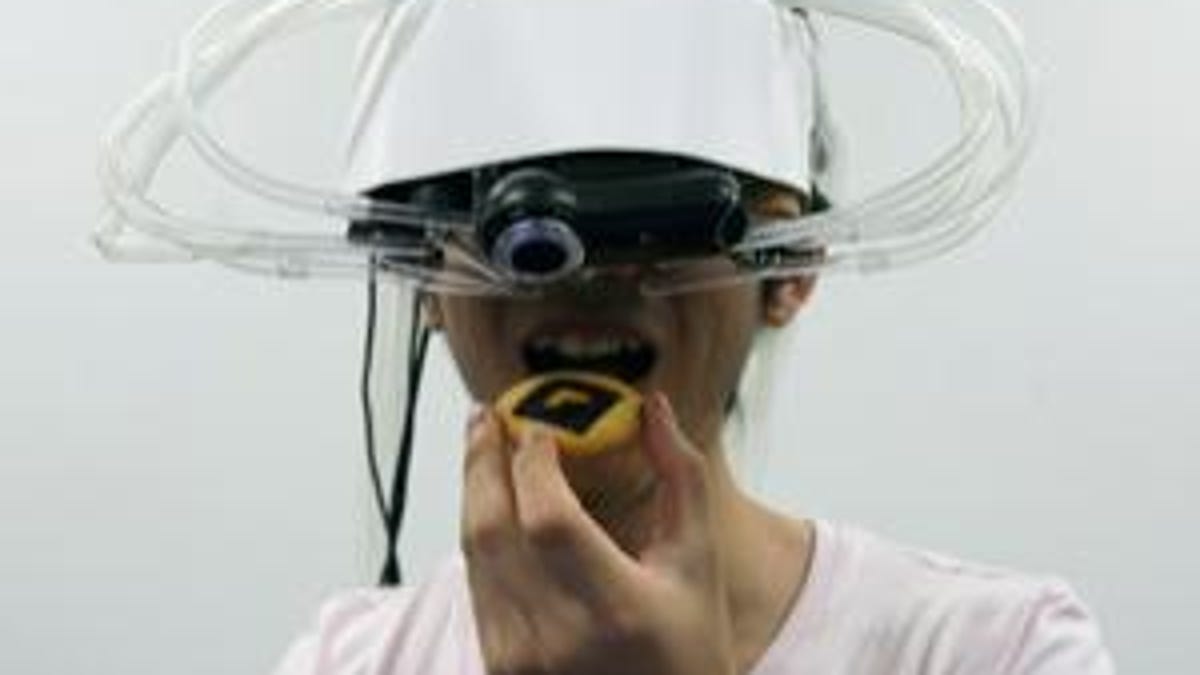Cookie headset: Do we smell the future of sweets?
Researchers in Japan (naturally) have found a way to make a boring old cookie taste like the exciting cookie you want. And we don't like it one bit.

We are now messing with things that mankind has no business messing with: confectionary treats.
"Meta Cookie" is an "interactive gustatory display" by Takuji Narumi of the University of Tokyo meant to test how computers can manipulate the way people perceive taste.
The mad scientist has created a helmet with goggles that connect to a camera. Wearing the headgear, the subject sees video images of a variety of cookie types and chooses the one that appeals.
Once a cookie flavor is selected, the goggles use augmented reality to make a plain old cookie look like the cookie of choice. Then, air tubes attached to the helmet pump scents of the desired treat into the eater's face. You want chocolate chip? Request it, and the cookie becomes just that visually and aromatically via sensory feedback. In truth, of course, you're just munching on a plain cookie with an AR marker.
And there's still no cure for cancer.
Visitors to the recent Siggraph computer graphics and animation conference in Los Angeles got a taste of how Meta Cookie works, but we do not approve of the implications of a future in which this technology takes hold. When Skynet takes over, the machine will choose which cookie we get. That is not freedom, that is the opposite of it. Clearly the only way to retain our last shred of humanity in the upcoming man-machine wars is to make our own snickerdoodles.
(Via New Scientist)